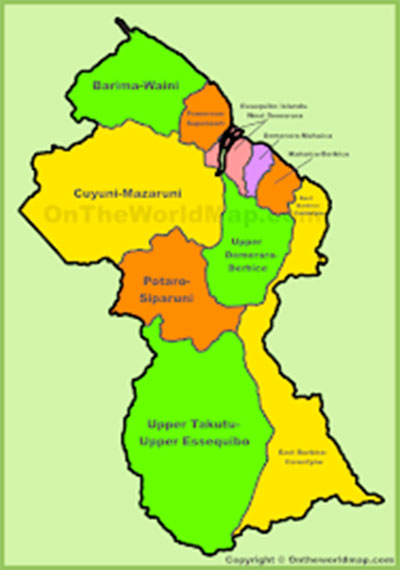Pronouncements as to just where Guyana’s oil and gas industry is heading and just how long it will take for the country to leave a significant footprint on the sector as big as at least some of the members of the Organization of Petroleum Exporting Countries (OPEC) continue to flow thick and fast even as ExxonMobil continues to ramp up the country’s oil production levels.
Late last week the online oil and gas Information and Resource Centre created to publicize the work of stakeholders in the local oil and gas sector made yet another intriguing disclosure regarding where the industry could be headed.
Late last week, quoting from a pronouncement by the Washington-based public policy and resource organization, American Security Project (ASP) OilNow reported that current estimates that over the next ten years Guyana’s oil production could reach as high as 750,000 barrels per day could be a considerable underestimation. Moreover the fact that almost all of the country’s reserves are likely to be “light sweet crude” positions it to do even better in terms of earnings from the resource than current analyses suggest.
“If all goes smoothly in permitting and production, output could rise to over 1 million barrels per day by 2030,” a circumstance that would rank Guyana “ahead of OPEC countries like Ecuador, Equatorial Guinea, or Gabon.” ASP goes further, suggesting that current stated production levels “may underestimate the country’s production, because they only account for the ExxonMobil/Hess/CNOOC consortium’s license in the Stabroek block. As other oil companies explore elsewhere in Guyana’s waters, they could see similar outcomes,” ASP asserts in a report.
Given the country’s current small population ASP, like previous analysts, is pointing to the likelihood of Guyana quickly elevating itself in the country rankings of oil production per person, likely outstripping even Gulf giants like Kuwait and the United Arab Emirates. And while it asserts that this could mean dramatic change for the country “the actions of the government and people of Guyana will determine how it changes,” OilNow quotes the ASP report as saying. In sum, the OilNow report, in summarizing the ASP perspective says “more money will flow into Guyana, both to government coffers in the form of royalties, profit sharing, and lease payments; and to the broader economy, as workers are hired, and local contracts are signed.” It adds that if this anticipated economic boom is properly directed it could provide the basis for dealing with longstanding security, economic and social problems.The ASP’s is not the first speculative upbeat assessment as to just where Guyana’s new-found oil wealth can take the country’s fortunes and like previous assessments it also comments on just how badly things could go if good fortune is not attended by sound decisions. It warns that “throwing money on top of intractable social problems without reform could end up only making them worse,” adding that “a growing body of evidence shows that unexpected increases in resource wealth given to countries with weak and unstable political institutions can only make the problems worse and more intractable…It can add a layer of government instability and economic challenges to already existing internal threats. For that reason, policymakers should acknowledge that money could solve some problems, while reform and foresight must be used to prevent others.”
With the initial international attention that Guyana had attracted in the wake of the 2015 ExxonMobil announcement of a major oil find now having receded somewhat, attention is now focusing, increasingly, on just whether the political decisions and social pursuits will convert the country’s oil wealth into genuine development. While some analysts both inside and outside the country have become more insistent on the need for the domestic political forces to reach some sort of modus vivendi on a common understanding with regard to the country’s socio-economic direction, going forward actualization has, up until now, proven to be much more challenging to realize than the current wishful thinking.





